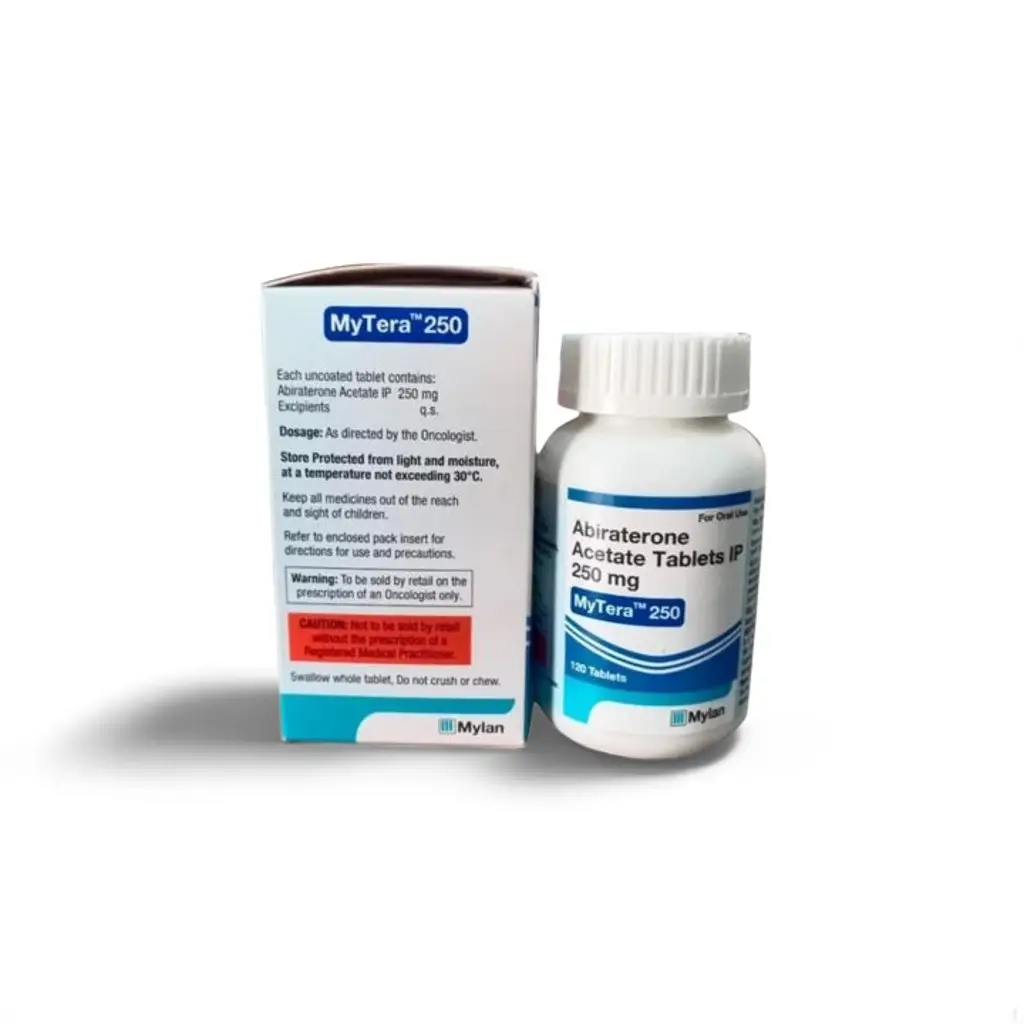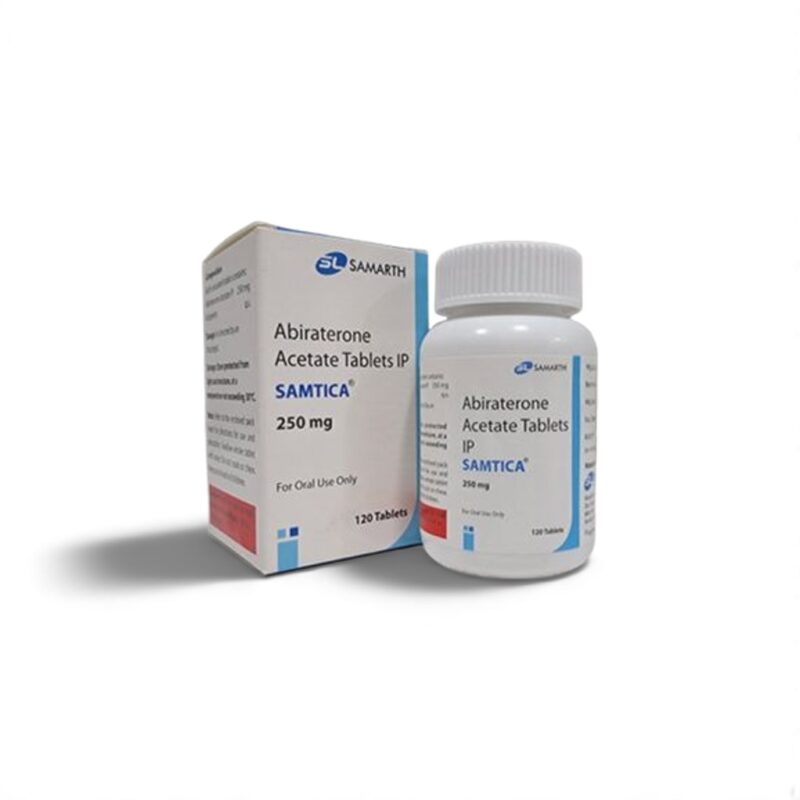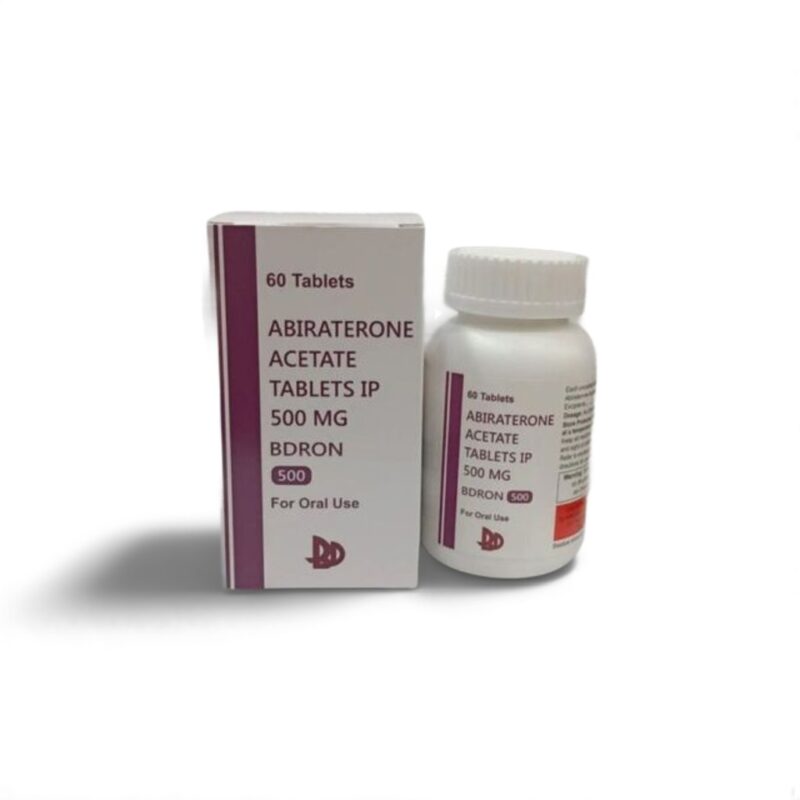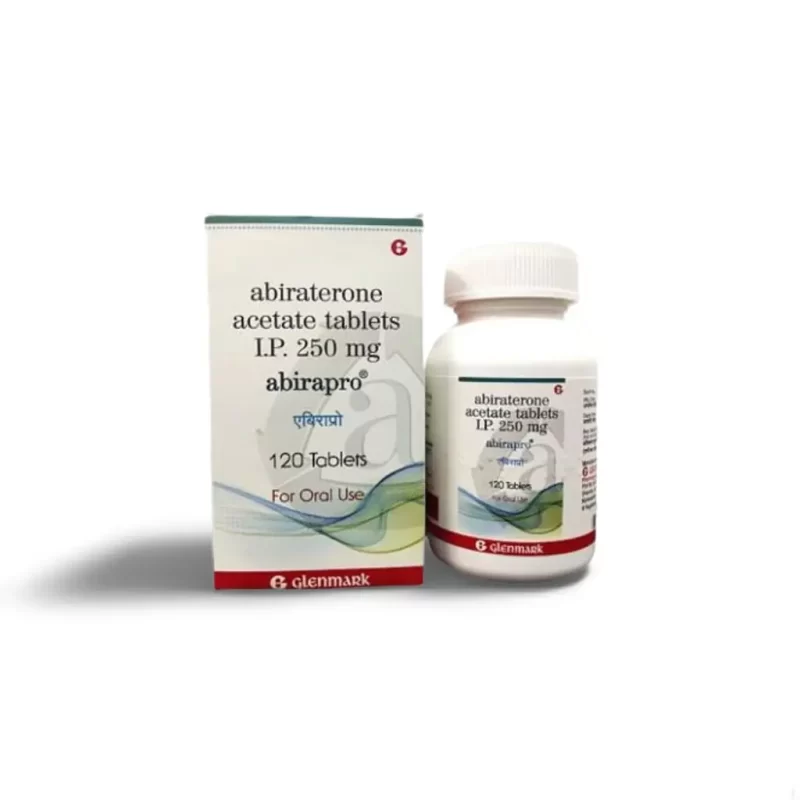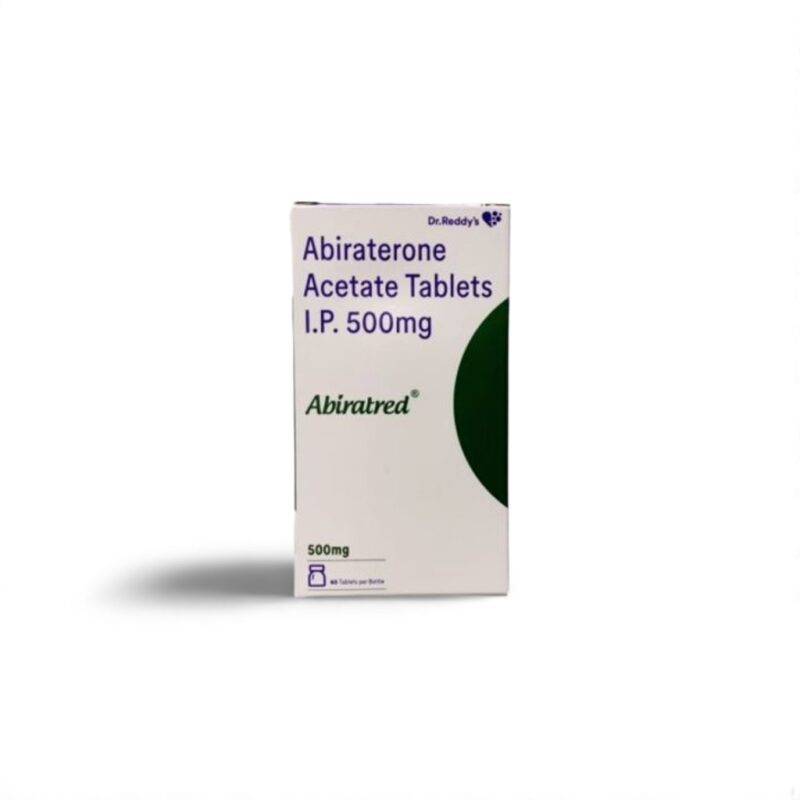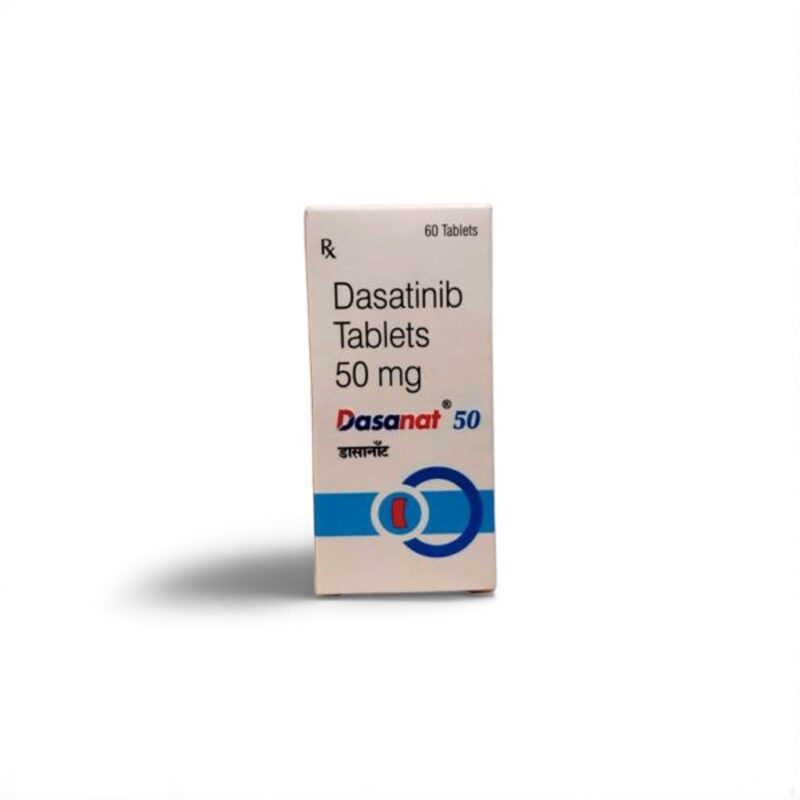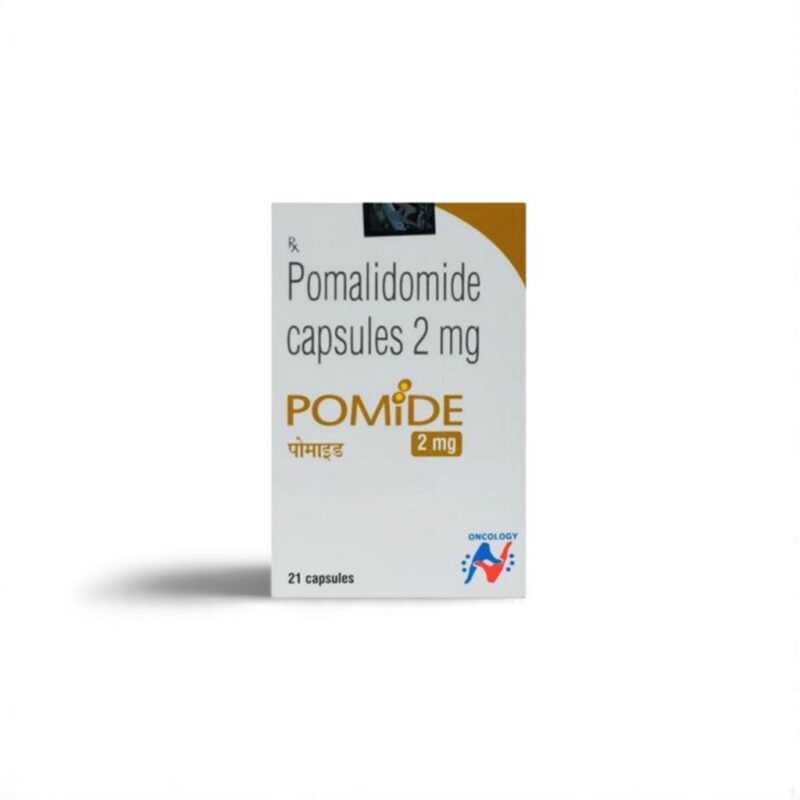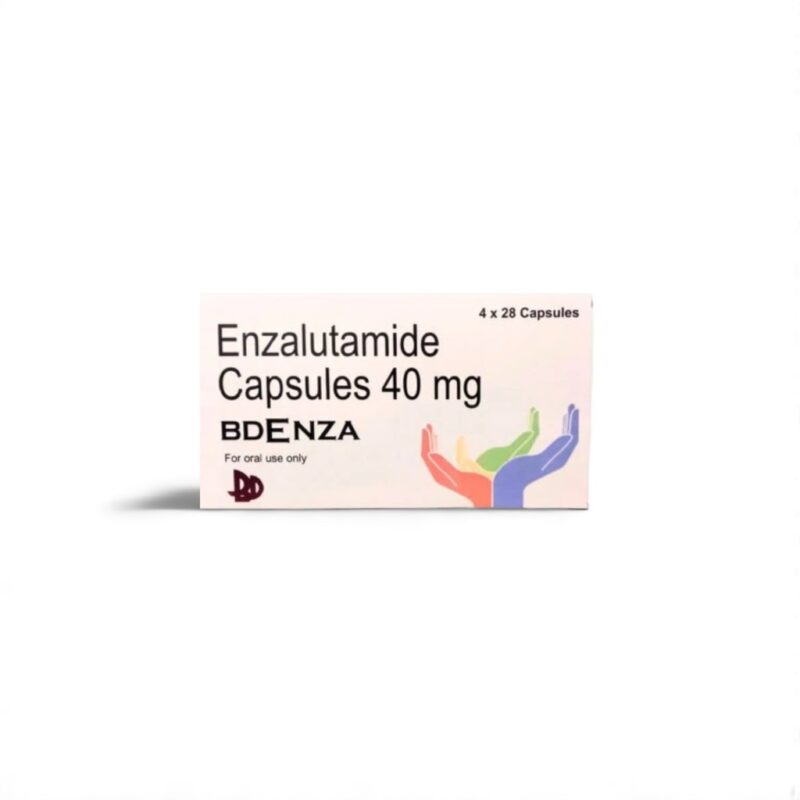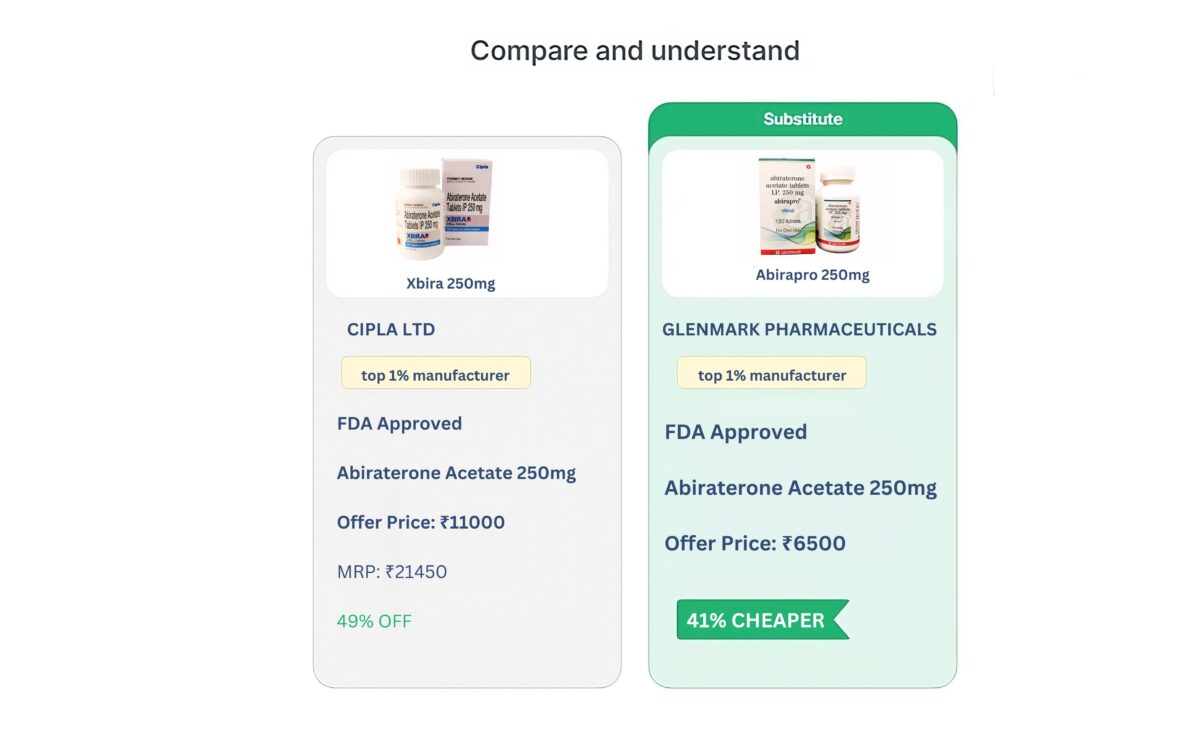Mytera 250mg tablet
₹17,990.00 Original price was: ₹17,990.00.₹6,100.00Current price is: ₹6,100.00.
Indian rupee (₹) - INR
-
Indian rupee (₹) - INR
-
United States dollar ($) - USD
-
Euro (€) - EUR
Salt Composition: Abiraterone Acetate
Manufacturer: Mylan Pharmaceuticals
Packaging Size: 60 tablets
Delivery Services

Categories: Abiraterone Acetate, Anti Cancer, Prostate Cancer
Mytera 250mg tablet
Mytera 250mg tablet is prescribed to manage prostate gland cancer. It may also be used to treat other conditions, as determined by the doctor. In some cases, it is integrated with specific medications as part of combination chemotherapy.
You should not accept the Mytera 250mg tablet on an empty stomach, as doing so with food may cause side effects. Your doctor will choose the proper dosage and frequency based on the particular condition you are treating, and these guidelines might change over time. It is crucial to follow your doctor's guidance regarding the exact way to take the medication, as improper usage or excessive intake can result in severe side effects. Since it may take weeks or months to see results, don't stop taking the medication unless your doctor says so.
Prior to initiating this medication, inform your doctor of any pre-existing conditions, such as high blood pressure, heart issues, liver or kidney problems, or similar use of medications for treating infections. Give your doctor a thorough list of all the medications you are currently taking, because many other drugs may interact with or impact this one. During pregnancy and breastfeeding, avoid this medication because it may harm your baby. We advise both males and females to use effective contraception throughout the treatment to prevent pregnancy. Additionally, regular monitoring of your blood glucose level may be required during the course of treatment.
You should not accept the Mytera 250mg tablet on an empty stomach, as doing so with food may cause side effects. Your doctor will choose the proper dosage and frequency based on the particular condition you are treating, and these guidelines might change over time. It is crucial to follow your doctor's guidance regarding the exact way to take the medication, as improper usage or excessive intake can result in severe side effects. Since it may take weeks or months to see results, don't stop taking the medication unless your doctor says so.
Prior to initiating this medication, inform your doctor of any pre-existing conditions, such as high blood pressure, heart issues, liver or kidney problems, or similar use of medications for treating infections. Give your doctor a thorough list of all the medications you are currently taking, because many other drugs may interact with or impact this one. During pregnancy and breastfeeding, avoid this medication because it may harm your baby. We advise both males and females to use effective contraception throughout the treatment to prevent pregnancy. Additionally, regular monitoring of your blood glucose level may be required during the course of treatment.
Uses of Mytera 250mg tablet
Benefits of Mytera 250mg tablet
Abiraterone Acetate is a medicine used to treat prostate cancer (a type of cancer in the male reproductive system).
1. Slows Down Cancer Growth
It lowers the amount of male hormones (like testosterone) in the body.
These hormones help prostate cancer grow, so lowering them can slow or stop the cancer.
2. Improves Life Span
It can help men with prostate cancer live longer, especially when taken with other medicines like prednisone.
3. Reduces Symptoms
It may reduce pain, tiredness, and other symptoms caused by cancer.
4. Used in Advanced Stages
Works well for men whose prostate cancer has spread to other parts of the body or hasn't improved with other treatments.
1. Slows Down Cancer Growth
2. Improves Life Span
3. Reduces Symptoms
4. Used in Advanced Stages
How to use Mytera 250mg tablet
1. Usual Dose:
1,000 mg once daily (typically 4 tablets of 250 mg or 2 tablets of 500 mg).
Timing:
Take it on an empty stomach, either:
1 hour before eating
or 2 hours after eating
Food increases the drug's absorption — which can lead to excessive side effects.
3. With Prednisolone:
Must be taken along with Prednisolone (usually 5 mg once or twice a day) to help prevent side effects like:
High blood pressure
Low potassium (hypokalemia)
Fluid retention
4. Swallow Whole:Do not crush, chew, or split the tablets.
5. Same Time Daily:Take your dose at the same time every day to maintain consistent drug levels in your body.
What to Avoid:Avoid eating before/after taking the tablet (see timing rule above).
Avoid grapefruit or grapefruit juice — it may interfere with the drug's metabolism.
Do not skip prednisolone unless your doctor adjusts it.
Timing:
3. With Prednisolone:
4. Swallow Whole:
5. Same Time Daily:
What to Avoid:
How Mytera tablet works
Mechanism of Action (How It Works):
1. Prostate Cancer Depends on Androgens
Most prostate cancers need testosterone or similar hormones to grow and survive.
2. Abiraterone Targets an Enzyme Called CYP17A1
This enzyme is found in the testes, adrenal glands, and tumor tissues.
It plays a key role in making testosterone and other androgens.
3. What Abiraterone Does:
It blocks CYP17A1, stopping the body from making androgens — even in areas where standard hormone therapy can't reach.
This leads to an extra-deep suppression of testosterone levels.
4. Result:
With less testosterone available, cancer cells can’t grow or survive easily, so the disease slows down or even shrinks.
1. Prostate Cancer Depends on Androgens
2. Abiraterone Targets an Enzyme Called CYP17A1
3. What Abiraterone Does:
4. Result:
Dosage and Administration
ABIRATERONE ACETATE 1,000 mg (four 250 mg tablets) was administered orally once daily in combination with prednisone 5 mg, which was administered orally twice daily. ABIRATERONE ACETATE must be taken on an empty stomach. No food should be consumed for at least two hours before and one hour after taking the dose.
The tablets should be swallowed whole with water. Do not crush or chew the tablets.
For patients who develop hepatotoxicity during treatment, ABIRATERONE ACETATE should be temporarily discontinued until recovery. Retreatment may be initiated at a reduced dose. However, ABIRATERONE ACETATE should be permanently discontinued if the patient develops severe hepatotoxicity. For patients with baseline moderate hepatic impairment (Child-Pugh Class B), the starting dose of ABIRATERONE ACETATE should be reduced to 250 mg once daily.
The tablets should be swallowed whole with water. Do not crush or chew the tablets.
For patients who develop hepatotoxicity during treatment, ABIRATERONE ACETATE should be temporarily discontinued until recovery. Retreatment may be initiated at a reduced dose. However, ABIRATERONE ACETATE should be permanently discontinued if the patient develops severe hepatotoxicity. For patients with baseline moderate hepatic impairment (Child-Pugh Class B), the starting dose of ABIRATERONE ACETATE should be reduced to 250 mg once daily.
Therapeutic Effects of Mytera 250mg tablet
Mytera 250 mg functions by suppressing the synthesis of the hormone testosterone, impeding the progression of prostate cancer, and slowing its growth.
Mytera 250mg tablet's compatibility with other medications
Ensure you inform your doctor about any prescribed medications, over-the-counter drugs, nutritional and vitamin supplements, as well as herbal products you are currently taking or have used prior to initiating the treatment. Some medications may interact with Mytera 250mg tablets, potentially leading to unwanted side effects.
More Information about Mytera 250mg tablet
Special population
Pregnancy and Lactation
ABIRATERONE ACETATE can cause fetal harm when administered to a pregnant woman, based on its mechanism of action and findings in animal studies. While there are no adequate and well-controlled studies of ABIRATERONE ACETATE in pregnant women and it is not indicated for use in women, it is important to recognize that maternal use of a CYP17 inhibitor could affect fetal development.Abiraterone acetate caused developmental toxicity in pregnant rats at exposures lower than those observed in patients receiving the recommended dose. ABIRATERONE ACETATE is contraindicated in women who are pregnant or may become pregnant while receiving the drug.
If this drug is used during pregnancy, or if a patient becomes pregnant while taking it, the patient should be informed of the potential hazard to the fetus and the risk of pregnancy loss. Advise females of reproductive potential to avoid becoming pregnant during treatment with ABIRATERONE ACETATE.
Nursing Mothers
ABIRATERONE ACETATE is not indicated for use in women. It is unknown whether abiraterone acetate is excreted in human milk. Because many drugs can be excreted in human milk and may affect nursing infants, a decision should be made to either discontinue nursing or discontinue the drug, taking into account the importance of the drug to the mother.
The most common laboratory abnormalities (>20%) are anemia, elevated alkaline phosphatase, hypertriglyceridemia, lymphopenia, hypercholesterolemia, hyperglycemia, elevated AST, hypophosphatemia, elevated ALT, and hypokalemia.
Two randomized, placebo-controlled, multicenter clinical trials enrolled patients with metastatic castration-resistant prostate cancer (mCRPC) who were receiving a gonadotropin-releasing hormone (GnRH) agonist or had previously undergone orchiectomy. In both studies, ABIRATERONE ACETATE was administered at a dose of 1,000 mg once daily in combination with prednisone 5 mg twice daily in the active treatment arm. The control patients received placebo plus prednisone 5 mg twice daily.
The most common adverse drug reactions (>10%) reported in the two randomized clinical trials that occurred more frequently (>2%) in the abiraterone acetate arm were fatigue, joint swelling or discomfort, edema, hot flush, diarrhea, vomiting, cough, hypertension, dyspnea, urinary tract infection, and contusion.
The most common laboratory abnormalities (>20%) reported in the two randomized clinical trials that occurred more frequently (>2%) in the abiraterone acetate arm were anemia, elevated alkaline phosphatase, hypertriglyceridemia, lymphopenia, hypercholesterolemia, hyperglycemia, elevated AST, hypophosphatemia, elevated ALT, and hypokalemia.
One study enrolled 1,195 patients with metastatic CRPC who had previously received docetaxel chemotherapy. Patients were not eligible if AST and/or ALT exceeded 2.5× the upper limit of normal (ULN) in the absence of liver metastases. Patients with liver metastases were excluded if AST and/or ALT exceeded 5× ULN.
Table 1 shows adverse reactions in the ABIRATERONE ACETATE arm in one study that occurred with a >2% absolute increase in frequency compared to placebo or were events of special interest. The median duration of treatment with ABIRATERONE ACETATE was 8 months.
Adverse Reactions
The most common adverse reactions (>10%) are fatigue, joint swelling or discomfort, edema, hot flush, diarrhea, vomiting, cough, hypertension, dyspnea, urinary tract infection, and contusion.The most common laboratory abnormalities (>20%) are anemia, elevated alkaline phosphatase, hypertriglyceridemia, lymphopenia, hypercholesterolemia, hyperglycemia, elevated AST, hypophosphatemia, elevated ALT, and hypokalemia.
Two randomized, placebo-controlled, multicenter clinical trials enrolled patients with metastatic castration-resistant prostate cancer (mCRPC) who were receiving a gonadotropin-releasing hormone (GnRH) agonist or had previously undergone orchiectomy. In both studies, ABIRATERONE ACETATE was administered at a dose of 1,000 mg once daily in combination with prednisone 5 mg twice daily in the active treatment arm. The control patients received placebo plus prednisone 5 mg twice daily.
The most common adverse drug reactions (>10%) reported in the two randomized clinical trials that occurred more frequently (>2%) in the abiraterone acetate arm were fatigue, joint swelling or discomfort, edema, hot flush, diarrhea, vomiting, cough, hypertension, dyspnea, urinary tract infection, and contusion.
The most common laboratory abnormalities (>20%) reported in the two randomized clinical trials that occurred more frequently (>2%) in the abiraterone acetate arm were anemia, elevated alkaline phosphatase, hypertriglyceridemia, lymphopenia, hypercholesterolemia, hyperglycemia, elevated AST, hypophosphatemia, elevated ALT, and hypokalemia.
One study enrolled 1,195 patients with metastatic CRPC who had previously received docetaxel chemotherapy. Patients were not eligible if AST and/or ALT exceeded 2.5× the upper limit of normal (ULN) in the absence of liver metastases. Patients with liver metastases were excluded if AST and/or ALT exceeded 5× ULN.
Table 1 shows adverse reactions in the ABIRATERONE ACETATE arm in one study that occurred with a >2% absolute increase in frequency compared to placebo or were events of special interest. The median duration of treatment with ABIRATERONE ACETATE was 8 months.
References
FAQ - Abiraterone Acetate
1What is the recommended method for consuming Abiraterone Acetate tablet?
Follow the doctor's prescription when taking an Abiraterone Acetate tablet on an empty stomach. Eat at least 2 hours before taking the medication, and wait 1 hour afterward to eat.
2Is the Abiraterone Acetate tablet capable of curing prostate cancer?
Abiraterone acetate 250mg tablet does not provide a cure for prostate cancer; rather, it is used in the treatment of prostate cancer that has metastasized. Typically, doctors prescribe this drug in the early stages of the condition, combining it with testosterone-lowering therapy to minimize potential side effects.
3Does the use of Abiraterone Acetate tablets exacerbate liver conditions?
Abiraterone Acetate tablet is discouraged for individuals with severe liver conditions, as it may make the condition worse. Before using this medication, patients should inform their doctor about any existing liver disorders.
4What is the mechanism of action of the Abiraterone Acetate 250mg tablet?
Abiraterone acetate 250mg tablet, an anticancer medication, functions by inhibiting the production of androgens and blocking the enzyme responsible for their integration.
5Is Abiraterone Acetate tablet a chemotherapy drug?
Abiraterone Acetate tablet is not a chemotherapy drug; rather, it is a hormonal treatment employed for prostate cancer. It acts by inhibiting testosterone production, thereby mitigating the growth of prostate cancer.
6What potential side effects may arise from the use of the Abiraterone Acetate tablet?
Common side effects of the Abiraterone Acetate tablet include edema (fluids in the legs), decreased blood potassium levels, elevated blood pressure, urinary tract infections, an irregular heartbeat, diarrhea, skin rashes, and indigestion.
7Abiraterone acetate india
Abiraterone acetate india
The attending physician prescribes abiraterone acetate for the treatment of prostate gland cancer and may also use it to address other medical conditions as deemed appropriate. Additionally, the attending physician occasionally incorporates it into combination chemotherapy protocols in collaboration with other medications.8What is abiraterone acetate used for
What is abiraterone acetate used for
Prostate cancer9What is abiraterone acetate
What is abiraterone acetate
Males with prostate cancer receive prescriptions for the medication abiraterone acetate.10What does abiraterone acetate do
What does abiraterone acetate do
Abiraterone acetate prevents the growth of cancer cells in men by reducing testosterone levels, a natural male hormone. Additionally, it reduces discomfort in the urinary area and facilitates easier urination.11Does abiraterone acetate cure prostate cancer
Does abiraterone acetate cure prostate cancer
While abiraterone won't cure prostate cancer, it is effective in managing and controlling the disease, and studies have demonstrated its ability to extend the lifespan of some men. Additionally, it aids in treating or postponing symptoms such as pain and fatigue.12How does abiraterone acetate work
How does abiraterone acetate work
Abiraterone functions by inhibiting the production of the hormone testosterone, using a unique mechanism compared to other forms of hormone therapy. For the majority of men, prostate cancer cells are unable to grow without testosterone, even if they have metastasized to other areas of the body.13How long should abiraterone acetate be taken
How long should abiraterone acetate be taken
Prednisone and abiraterone acetate work together as a hormone therapy to treat metastasized prostate cancer. Patients generally continue taking medications like Zelgor, Abirapro, Arbitus, Xbira, Zytiga, Samtica, Abiratred, etc., for as long as they prove effective or are tolerable.14How to take abiraterone acetate
How to take abiraterone acetate
Abiraterone is available in tablet form for oral consumption on an empty stomach with water, either 1 hour before or 2 hours after eating. One should typically take Abiraterone once or twice daily, ideally at approximately the same time each day.15Is abiraterone acetate covered by medicare
Is abiraterone acetate covered by medicare
Definitaly. All Medicare prescription drug plans include coverage for this medication, ensuring comprehensive access.All Substitutes
| Product | Packaging Size | Manufacturer | Price |
|---|---|---|---|
| Abirapro 250mg tablet | 120 tablets | Glenmark Pharmaceuticals | INR 6300 |
| Bdron 250mg tablet | 120 tablets | BDR Pharmaceuticals | INR 6200 |
| Samtica 250mg tablet | 120 tablets | Samarth Life Sciences | INR 9990 |
| Xbira 250mg tablet | 120 tablets | CIPLA Ltd | INR 10800 |
| Ahabir 250mg tablet | 120 tablets | Hetero Healthcare | INR 6000 |
| Zelgor 250mg tablet | 120 tablets | Sun Pharma | INR 11000 |
Side Effects
Abiraterone Acetate side effects
1. Edema (swelling)
2. Vomiting
3. Decreased potassium level in the blood
4. Decreased white blood cell count
5. Fatigue
6. Increased liver enzymes
7. Anemia (a low number of red blood cells)
8. Urinary tract infection
9. Diarrhea
10. High blood pressure
11. Cough
12. Hypercholesterolemia (high cholesterol)
13. Joint swelling
14. Increased levels of blood fat
15. Altered blood sugar level
You may also like…
-
Samtica 250mg tablet
₹29,700.00Original price was: ₹29,700.00.₹6,300.00Current price is: ₹6,300.00. -
Bdron 250mg tablet
₹28,440.00Original price was: ₹28,440.00.₹6,200.00Current price is: ₹6,200.00. -
Abirapro 250mg tablet
₹28,000.00Original price was: ₹28,000.00.₹6,300.00Current price is: ₹6,300.00. -
Abiratred 500mg tablet
₹14,000.00Original price was: ₹14,000.00.₹7,960.00Current price is: ₹7,960.00.
Related products
-
Dasanat 50mg tablet
₹6,500.00Original price was: ₹6,500.00.₹3,200.00Current price is: ₹3,200.00. -
Pomalidomide 2mg capsule
₹8,329.00Original price was: ₹8,329.00.₹3,200.00Current price is: ₹3,200.00. -
Bdenza 40mg capsule
₹17,983.91Original price was: ₹17,983.91.₹3,750.00Current price is: ₹3,750.00.

